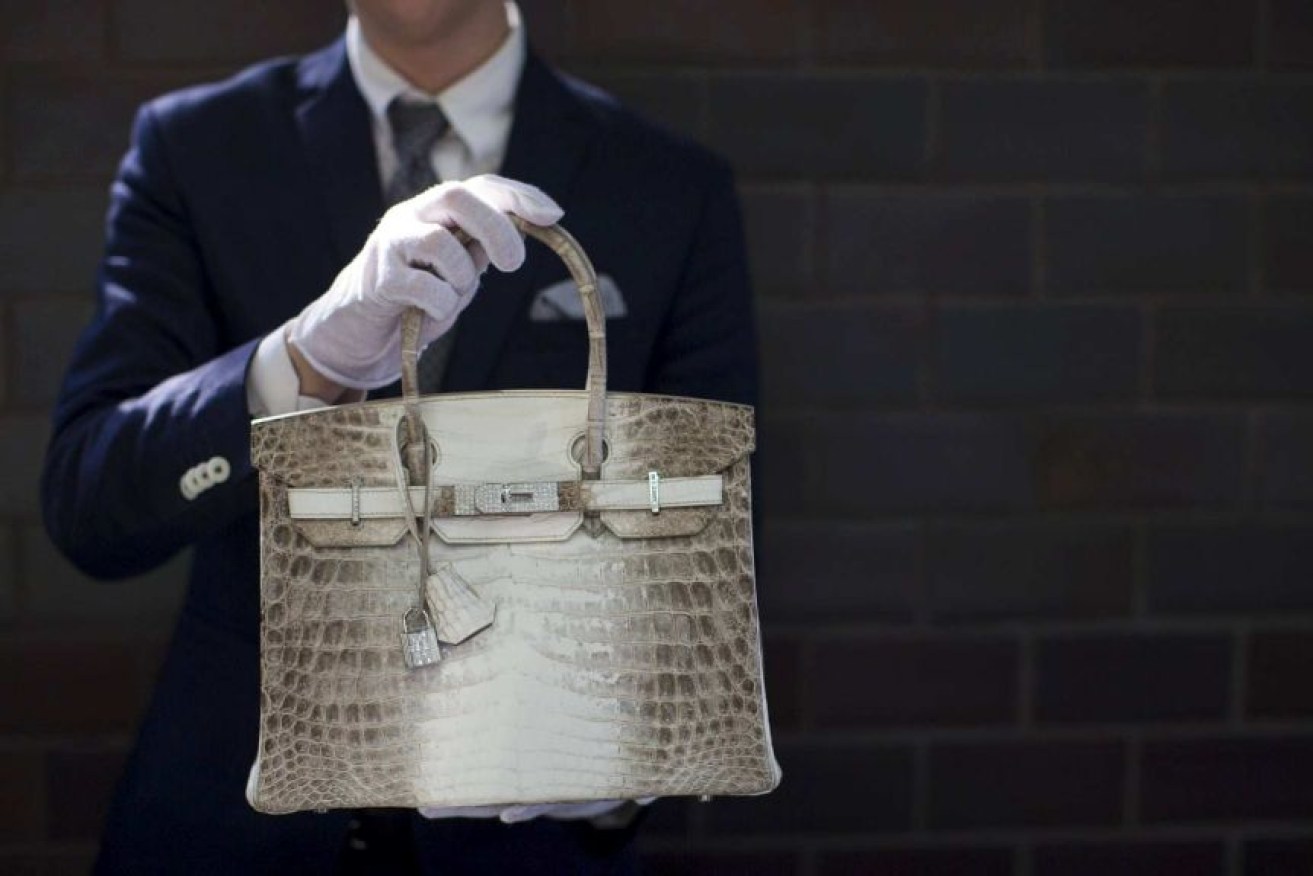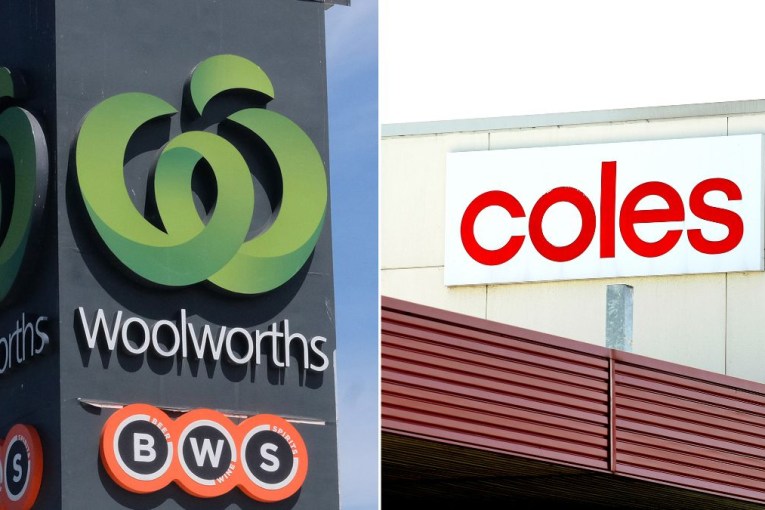French fashion label Hermès set to start NT croc farm with Mick Burns

Hermès' crocodile-skin handbags can sell for over $30,000. Photo: ABC/Mario Anzuoni/REUTERS
A French fashion house has teamed up with Northern Territorian Mick Burns to buy a former horticultural farm near Darwin, where they plan to build Australia’s biggest crocodile farm.
PRI Farming – which is ultimately controlled by the French high fashion label Hermès – has purchased The Sweet Life, a former melon and banana farm at Lambells Lagoon, for $7.25 million.
Veteran of the NT crocodile farming industry Mick Burns is a director of PRI Farming, alongside three French nationals who are also directors of Hermès.
The company plans to build a facility capable of housing 50,000 saltwater crocodiles, which will be farmed for skin and meat products, with reported development costs of about $40 million.
Proposed croc farm to be Australia’s largest
If Mr Burns’s venture comes to fruition, it will increase the number of farmed crocodiles in the NT by 50 per cent.
The proposed farm would include an egg incubator laboratory, hatchery, grower pens, finishing pens, an open farm area, refrigerated feed preparation and storage areas, according to documents submitted by Mr Burns to the NT Environment Protection Agency.
Supporting infrastructure such as a workshop, a solar farm, accommodation houses and fuel storage areas were also included in the plans.
Approximately 30 people would be employed at the farm during full production, which would increase from 4000 crocodiles in its second year to 50,000 in the fifth year.

The Sweet Life farm in Lambells Lagoon was previously used as a melon and banana farm. Photo: ABC/Colliers International
Geoff McClure, a crocodile farming consultant who has been involved in the industry since the 1980s, says the proposed farm will be a big expansion for the industry.
“The people establishing that farm would have no doubt that they can plan for the future,” he said.
“[Crocodile] farming infrastructure only lasts around 20 years, and there are advances being made in animal husbandry which mean that you do need to update or change your infrastructure.
“So there is probably very good reason to build a new farm.”

A proposed crocodile farm near Darwin aims to house up to 50,000 saltwater crocodiles. Photo: ABC Rural: Daniel Fitzgerald
French fashion labels dominate croc farming
French fashion labels Hermès and Louis Vuitton own or control the overwhelming majority of crocodile farms in the NT.
Mr McClure said Hermès’s first purchase of a crocodile farm about 10 years ago had a “domino effect”, which caused Louis Vuitton to buy its own farms out of “concern about Hermès owning the whole Australian market”.
“If they [Hermès and Louis Vuitton] buy up the farms, they have continuity of supply and they have a value-adding factor,” Mr McClure said.
“They are harvesting eggs in the NT, raising those crocodiles on their own farms, to their own standard – and that standard has to be incredibly high, with no damage to the skin at all – and then tanning that skin to a very high-quality standard to produce a product for high-quality fashion.
“We are talking here about handbags that are worth $US20,000 to $US30,000.”
Both Hermès and Louis Vuitton tend to keep their ownership of crocodile farms out of the spotlight – there is no mention of their involvement with the industry on either of their websites.
ABC Rural understands crocodile farmers who have been bought out by the luxury brands are often bound from speaking about the sale by non-disclosure agreements.

Over 24,600 skins were exported from the NT in 2018/2019. Photo: ABC Capricornia/Megan Hendry
Mr McClure says Hermès and Louis Vuitton like Australian saltwater crocodiles because they have “more scales per unit of area on the belly”.
“The NT has traditionally been the home of crocodile farming because of climatic factors – it is warmer there,” he said.
“[In the NT] egg harvesting is well established … and the numbers of eggs that are able to be removed under licence is increasing, so there is a certainty in the consistency of supply of eggs that you are not going to get in Queensland or Western Australia.
“Also, in the NT there is a culture of accepting crocodiles as part of the environment.”
In 2018/2019 over 24,600 crocodile skins were exported from the NT, with the industry worth $26.7 million to the NT economy, according to the Department of Environment and Natural Resources (DENR).
Mr Burns declined ABC Rural’s requests for comment.
–ABC








